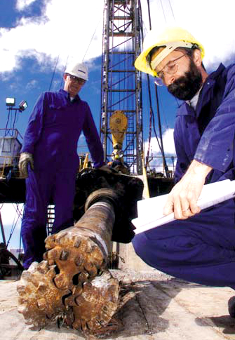Offshore moves take the government out of approvals
 The Federal Government has announced its ‘streamlined’ version of offshore petroleum and gas resource approvals, and already explorers are looking to sink their drill bits into the ocean floor.
The Federal Government has announced its ‘streamlined’ version of offshore petroleum and gas resource approvals, and already explorers are looking to sink their drill bits into the ocean floor.
The entire approvals process has been handed over to the National Offshore Petroleum Safety and Environmental Management Authority (NOPSEMA), removing the requirements of the Environment Protection and Biodiversity Conservation Act (EPBC Act) and the Offshore Petroleum and Greenhouse Gas Storage Act (OPGGS Act).
The NOPSEMA safety authority will now be the sole group in charge of assessing potential damage from offshore oil and gas rigs.
NOPSEMA was set up by former Energy Minister Martin Ferguson after the Montara oil spill in the Timor Sea. The body was intended give better oversight for health and safety issues around offshore petroleum activities.
The shift to NOPSEMA as the only assessment authority was initiated under the previous Labor government, but carried-out by the current Federal Government.
Members of the oil and gas industry have welcomed the move, doing away with large sets of rules and giving them just one office to deal with.
The change means one company will already look for the approval of a project that made no progress under the previous rules.
Bight Petroleum has been lured by the new state of play, announcing that it plans to conduct seismic testing in a 3,000 square kilometre area between Kangaroo Island and the Eyre Peninsula will now go to NOPSEMA.
“Bight Petroleum having not yet received approval under the old system, decided to withdraw its EPBC Act Referral 2013/6770, to enable the Company to apply for approval under the new amended regulations,” Bight Petroleum’s company website says.
Australian Petroleum Production and Exploration Association chief executive David Byers welcomed the change on behalf of the industry.
“By eliminating unnecessary duplication, this move will save taxpayers and industry millions of dollars without impairing environmental outcomes. It will reduce costs and delays for companies undertaking offshore exploration and production activities. But it will also reduce costs for regulatory agencies and taxpayers,” Mr Byers said in a statement.
The streamlined approach will allegedly lead to savings for industry and environmental groups worth an estimated $120 million per year.
But Matthew Collis, marine campaigns manager at International Fund for Animal Welfare, says there are numerous concerns for those interested in the health of the marine ecosystem.
Mr Collis says the Environment Department is outsourcing its safeguarding duties, placing them in the hands of the resources industry, away from public view.
“Decisions about extremely environmentally risky activities in Australian waters should be taken by the Environment Minister and he should be accountable to Parliament and the public for these decisions. He should not be palming off his responsibilities,” Collis says.
“One of the issues we've been raising throughout this process is do they have the necessary expertise to assess environmental matters.
“We have seen large levels of community opposition, thousands of people contacting the Minister for the Environment.
“Now those voices no longer have any means of being heard because there is no longer any practical public comment mechanisms for seismic surveying under this new regime.”
Applicants’ "'offshore project proposal" papers will be made available for public comment under the new regulations.








 Print
Print